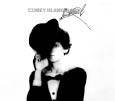Lou Reed
by Donny Kutzbach

So, you’re one of those geniuses who blows everyone’s mind every few years and then goes out of his way to bury all that greatness under personal bitterness, ego, alienation and “fuck ’em all” arrogance. If that’s the case and it’s 1976, you’re probably Lou Reed. He all but created underground art rock in the 1960s with the Velvet Underground, pissed off everyone in his band and went solo in the early 1970s, fortified glam and foretold a future of punk with Transformer, pissed off everyone (except maybe his #1 cheerleader, David Bowie), made a beautiful but failed epic with Berlin, pissed off everyone with a sheen-ridden live album, issue the amiable, pop-tinged Sally Can’t Dance—and then really, really pissed off everyone (and I mean almost everyone) with the kissoff of looping feedback electro cacophony on Metal Machine Music. So it’s time between pissing off everyone, then, right? Time for Coney Island Baby, one of Reed’s unmistakable, if sometimes overlooked, meisterwerks. Following the dismal reviews of the thoroughly misunderstood and maligned Metal Machine Music, many believed it was the end for one the era’s boldest innovators, including Reed himself. One person who hadn’t given up was the head of his label, Ken Glancy at RCA Records. Glancy believed in Reed’s artistry and felt he wasn’t cooked yet. Reed had no guitars—they had been usurped by unpaid crew members—but he had songs and decamped to Electric Lady Studios. The result as a record bathed in dark confessional tales that echoed his VU legacy and touched on the downtrodden dramatics of Berlin. “Charlie’s Girl” is a pluperfect sample of Reed’s patented, ambling street poetry. The title track finds stripped-down, laidback soul with ruminations on “playing football for the coach” and ultimately giving in to “the glory of love.” This latest reissue includes six alternate cuts and a foreword by Reed himself. Reed peeks from behind a bowler hat looking like a damaged Joel Grey from Cabaret on the album’s Mick Rock cover photo. Fittingly, on Coney Island Baby Reed is like an analog to Grey’s character: a master of ceremonies left to give a song and dance in front of self-loathing love triangles and a world crumbling around him.
|
Issue Navigation> Issue Index > v5n39: The Futile American Dream (9/28/06) > Left of the Dial > Lou Reed This Week's Issue • Artvoice Daily • Artvoice TV • Events Calendar • Classifieds |









 Current Issue
Current Issue